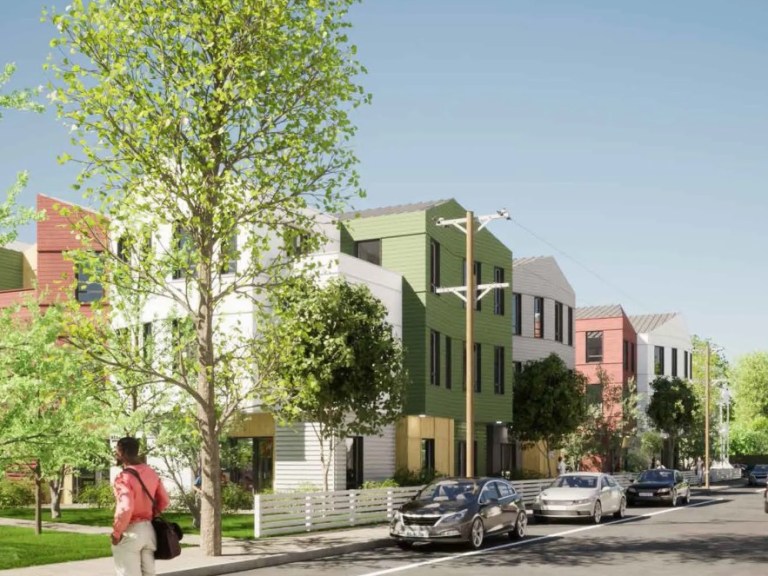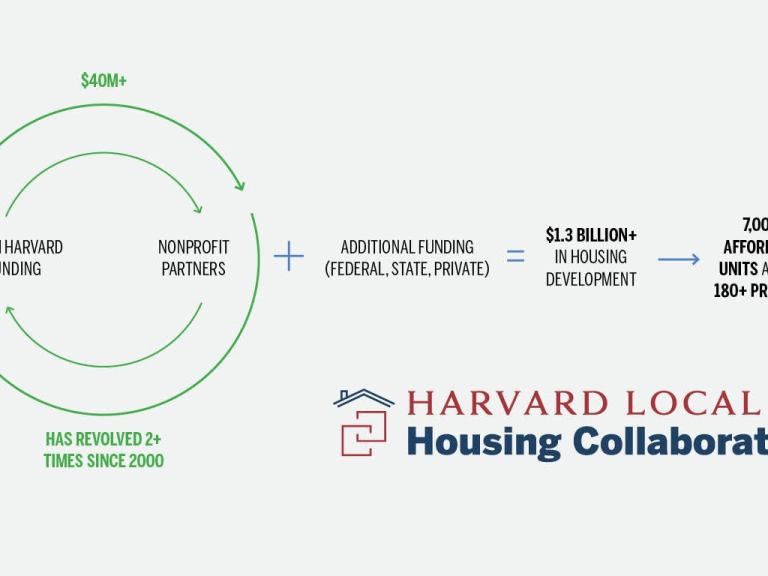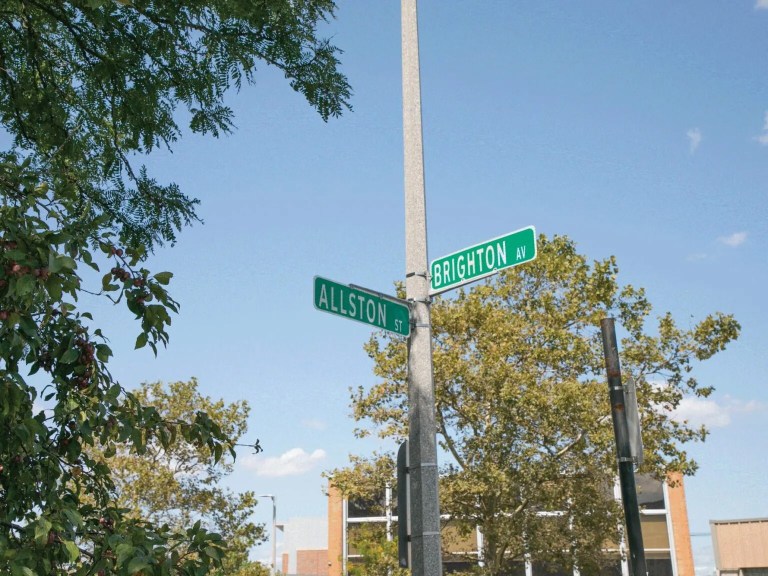Housing Initiatives
Housing Initiatives
Harvard is committed to working with its host communities to address the region’s high cost of housing. In addition to housing 98 percent of its undergraduates for four years, which relieves pressure on the local housing market, Harvard works with the cities of Cambridge and Boston to create and preserve thousands of affordable housing units as well as to support efforts to eliminate homelessness.
Easing demand on local housing
Our extensive residential portfolio ensures a vibrant living-learning campus for students and affiliates while easing the demand for local housing.
-
99%
of Harvard undergraduate students are housed on campus throughout their four years
-
8,700 units & ~15,000 beds
across campus devoted to housing Harvard affiliates
-
276
new housing units being constructed at 175 North Harvard Street, Allston

image credit: Urbanica, Inc.
Harvard is collaborating with the City of Boston to create more housing in Allston-Brighton
Through funding and land donation, Harvard has enabled the City of Boston and third-party developers to undertake two Allston housing projects– including the creation of 43 affordable homeownership units on land donated by Harvard at 65 Seattle St. in Allston, and the transformation of the historic Hill Memorial Baptist Church on North Harvard St. into 49 affordable rental units for Boston seniors. Harvard contributed $4.8 million to fully fund site acquisition for the latter.
Harvard local housing collaborative
Launched in 2000, the Harvard Local Housing Collaborative seeks to create and preserve affordable housing in the region through a $20 million low-interest, flexible loan program in partnership with three nonprofits. Low-interest financing is key to enabling the critical and early stages of affordable housing development.
-
7,000+
units of affordable housing created or preserved in the past 20 years
-
180+
affordable housing development projects in Greater Boston
-
$20 million
low-interest, flexible loan program is how Harvard supports the initiative.

How the fund works
Since 2000, $20 million has revolved more than twice allowing the investment of over $40 million in Harvard financing that has helped leverage over $1.3 billion in housing development across more than 180 projects in Boston and Cambridge.
NONPROFIT HOUSING PARTNERS:
Supporting affordable housing in Allston
Harvard is committed to several initiatives aimed at creating and preserving affordable and diverse housing options in Allston-Brighton.
| # of Units | # of Affordable Units | Homeownership | Affordable | Senior Housing | No Cost Land | |
| 90 Antwerp Street | 20 | 12* | X | X | X | |
| All Bright Homeownership Program | 25 | 0 | X | |||
| 65 Seattle Street | 42 | 42*2 | X | X | X | |
| Enterprise Research Campus | 345 | 86* | X | |||
| Addiction Treatment Center of New England | 11 | 11** | X | |||
| Hill Memorial Baptist Church | 50 | 50(3) | X | X | ||
| Other Harvard-Enabled Developments | 857 | 123 | X | |||
| Total | 1,350 | 324 |
Allston housing initiatives
All Bright Homeownership Program
A first-of-its-kind partnership between Allston Brighton Community Development Corporation (ABCDC), Harvard University, and the City of Boston designed to improve homeownership stabilization for local residents.
-
$14.7M
in funding leveraged by ABCDC since the start of the program
-
20
properties purchased since the start of the program
-
25
units sold since the start of the program

90 Antwerp Street and 65 Seattle Street in Allston
20 deed-restricted homeownership units with 12 affordable units enabled through Harvard donated land. Building on the success of 90 Antwerp Street development, Harvard announced the donation of a one-acre parcel at 65 Seattle Street in Allston.
Enterprise Research Campus: affordable housing commitments
The approval of the first phase of Harvard’s Enterprise Research Campus (ERC) in Allston created new affordable housing opportunities:
-
$25M
in Harvard funding to enable affordable housing in Allston-Brighton
-
25%
of all residential units in Phase A will be affordable
-
20%
of units in future phases of ERC development will be affordable
